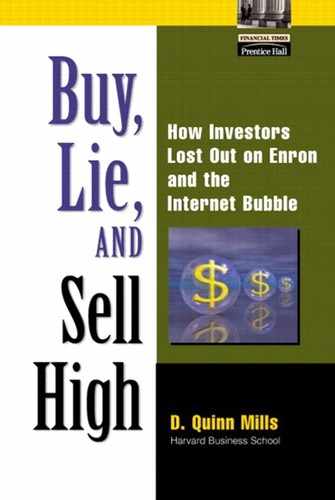The United States as the World's Financial Leader
The United States prides itself on being the financial leader of the world. By far the largest economy, it wields tremendous influence over, and bears responsibility to, the financial markets of other nations. There are two areas recognized as key to its economic leadership: its financial markets, and its high technology industry.
The United States capital market is generally thought to be the best in the world at allocating capital. It is highly developed, effective, and transparent. About America's financial markets, Fed Chairman Alan Greenspan told a Senate Committee in April 2000, “Participants in our equity markets have succeeded in concentrating a great depth of liquidity that is the envy of other nations and a symbol of the United States as the world's preeminent financial power…”[111]
Similarly, America's high technology sector is the largest, the most advanced, and the best funded in the world, and essential to our advanced defense systems.
So it is ironic that over the past several years, the U.S. economy experienced a largely dysfunctional interaction between these two key sectors. The Internet bubble occurred when the capital markets funded the technology companies in a careless and seriously damaging manner. This, in turn, wreaked havoc on the technology companies themselves, the investors, the U.S. economy, and ultimately, the world economy.
The consequences of the dot-com bubble are much more than that a group of young people (thought by many to be undeserving, if media commentary on the subject is to be believed) got rich, and then got poor again. The consequences include a serious weakening of our economy.
The American economy was seriously damaged in the short run because the collapse of the bubble has helped drive it into recession. The bubble blinded the United States to the weakness of the world economy. By mid-2001, the media was recognizing that the major economies of the world were slowing and recession was in danger of spreading worldwide. “The world is experiencing economic whiplash,” wrote Joseph Kahn and Edmund L. Andrews of The New York Times, “with growth rates retreating more quickly and in more of the leading economies than at any time since the oil shock of 1973.[112]
